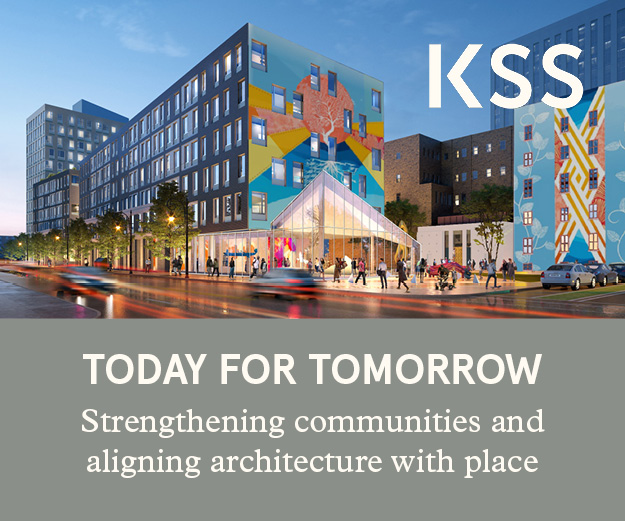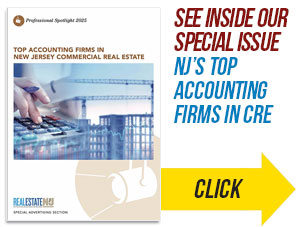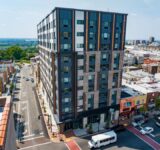By Joshua Burd
The New Jersey Builders Association is suing nearly 160 municipalities that have sought to reduce their affordable housing obligations under a law adopted last year, setting up a new round of legal battles as state officials roll out the closely watched program.
The organization, which represents homebuilders and apartment developers, said in late February that it had begun filing challenges against towns and cities that contested guidelines from the Department of Community Affairs. That follows the agency’s release last fall of the nonbinding calculations — which found a deficit of more than 150,000 low- and moderate-income homes across New Jersey’s 564 municipalities — launching a program that required governing bodies to adopt the state’s figures for their municipality or provide their own by Jan. 31.
Those that offered their own numbers based on land capacity or other factors are subject to challenges from developers, affordable housing advocates and other stakeholders through Feb. 28. NJBA is now targeting those 159 communities that adopted resolutions calling for lower obligations.
For instance, Brick Township believes its deficit is a mere 29 units or 8 percent of the 360 units identified by DCA last fall. Neptune Township, meantime, is seeking to wipe out its full obligation after the state said its prospective need was 170 lower-income homes, while White Township in Warren County believes its number is 53 units, a 269-unit reduction from DCA.
“These municipalities had the ability to produce their own fair share allocation model that would have applied in a uniform manner, but instead they chose to ignore the clear statutory requirements of the 2024 amendments to the Fair Housing Act and cherry pick data with the singular focus of reducing their fair share obligations,” Jeff Kolakowski, the association’s CEO, wrote in a prepared statement. “We feel compelled to respond in order to preserve the nearly 14,000 low- and moderate-income units that these 159 municipalities would seek to simply eliminate despite New Jersey’s established and pressing need for such affordable housing opportunities.”
Mike Cerra, executive director of the New Jersey State League of Municipalities, said he was “not surprised but profoundly disappointed” by the NJBA’s action, criticizing it as “reckless” and a “throw everything against the wall and see what sticks type of approach.”
“There are about 430 municipalities that have sought to comply with their obligation through this process, and the response from the builders is, ‘Across the board, everybody who sought to lower their number is wrong,’” Cerra said. “Now, taxpayer dollars are going to be spent defending these lawsuits across the board, regardless of why the reduction was sought in the first place.”
The framework comes under a law that Gov. Phil Murphy signed last March, aiming to streamline the tangled, at times polarizing process of building affordable housing under the state Supreme Court’s seminal Mount Laurel cases and Fair Housing Act. And it follows a decade in which the state judiciary oversaw enforcement — having assumed control in 2015 from the dormant Council on Affordable Housing — leading to the creation of some 21,000 deed-restricted affordable homes in New Jersey.
NJBA, for its part, pointed to its longstanding “strong interest and standing to advance sound affordable housing policy.” That’s the impetus for its move “to counter a concerted effort by these 159 municipalities to skirt the law,” the group said, while citing the ongoing litigation by 28 towns that have sought to block the statute’s implementation.
“(The towns) have amassed a legal war chest to challenge every aspect of the 2024 revisions to the Fair Housing Act despite the fact that the process they are challenging is a purely voluntary one,” Kolakowski wrote. “NJBA’s actions to defend against the filings of these 159 different towns requires substantial effort and great legal expense for our trade association. However, it is an action we felt necessary, as this is matter of statewide importance and imperative that we continue in our opposition to the municipal playbook of obfuscation and delay.
“NJBA has taken no action to impede or challenge those 250+ municipalities that demonstrated good faith compliance with the recent amendment to the Fair Housing Act by accepting their fair share allocation as established by the sound and audited methodology of the Department of Community Affairs.”
Cerra, meantime, pointed to DCA’s own admission that some of the datasets it used for its calculations were limited. That’s one reason why the agency’s guidance was nonbinding, he said, “so towns are complying with the statute, but the developers are trying to rewrite the statute.”
NJBA said its goal “is not to cause municipalities unnecessary legal expenses but to ensure that the law is followed and its equitable uniform approach is adopted for all New Jersey municipalities.” The association added that its position “is not one of rigidity, either, and we recognize that towns may eventually seek adjustments to their obligations after looking more comprehensively at their land and housing opportunities as they prepare updated compliance plans later this year.”
“However, what these 159 towns have attempted is to reduce the established need for affordable housing in this state,” the statement read. “We believe such an outcome would be unacceptable and only undermine our ability to meet the constitutional obligation to ensure reasonable opportunities for affordable housing throughout all of New Jersey. We look forward to continuing to work to address our housing underproduction, undersupply and affordability problem through the creation of a healthy supply of diverse housing types.”









